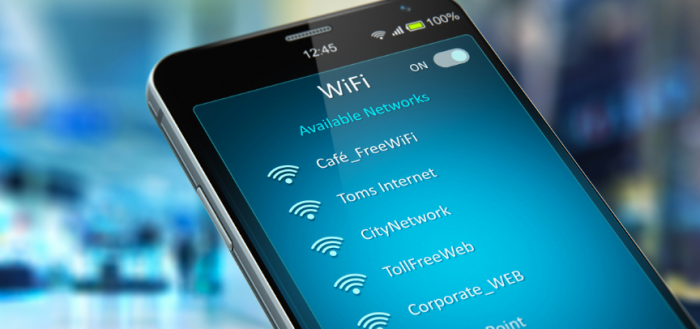
 Data Structure
Data Structure Networking
Networking RDBMS
RDBMS Operating System
Operating System Java
Java MS Excel
MS Excel iOS
iOS HTML
HTML CSS
CSS Android
Android Python
Python C Programming
C Programming C++
C++ C#
C# MongoDB
MongoDB MySQL
MySQL Javascript
Javascript PHP
PHP
- Selected Reading
- UPSC IAS Exams Notes
- Developer's Best Practices
- Questions and Answers
- Effective Resume Writing
- HR Interview Questions
- Computer Glossary
- Who is Who
Why do hackers love Public WiFi?
We often go to places where we are being provided with Free WiFi, and we connect our devices to that public WiFi thinking that it's free, but how many times do we think of the consequences one might have to face while connecting to that free WiFi?
In this post, we will see how public WiFi is home for hackers to find their victims.
Public WiFi is Less Secure
Public WiFi or Hotspots are mainly found in places like hotels, airports, restaurants, coffee shops, etc., where people usually go in large numbers and more frequently.
Using a public WiFi may seem harmless in checking social media or streaming your favourite movie. However, it can cause significant trouble if you check your account balance, send emails or even download any apps. That is because these connections are significantly less secure and have many loopholes inside them because you do not know who set it up, who is using that same network along with you, or if someone is doing some illegal activities along with you on that network.
These networks are unencrypted most of the time, and thus, any password or account details you enter and send are transmitted as it is in the plain readable text to its destination.
Man-in-the-Middle Attack
The other threat while using the public network is something called "Man in the middle attacks." Each time you visit some site, your data is sent to that server to complete the action you asked to perform, and then the information is sent back to you to complete that request. So in MitM, the hacker places himself in the middle of the server and user and can track whatever you are sending and whatever the server is sending back to you. So if you say, for example, you are making any online transaction, an attacker can even get access to your bank account.
Rogue Hotspots
The next most common thing attackers do on public hotspots is that they use the vulnerabilities and loopholes in security to transfer the malicious software and infected files through the public network. Whoever is connected to that network might get those files.
They also create rogue hotspots by the same name of the place; for example, if you are at a place named seven-star mall, they will make an open network of the same name like seven-star WiFi so people around may connect to that network. In this way, they become the victim of hackers.

Precautions to Take while Connecting to a Public WiFi
It's not always possible to avoid your device from public hotspots, so whenever it's required to connect to a public device, the following steps might help you to be a little more secure −
Never connect to a network that isn't password protected as good and reputed places will provide you WiFi free of cost, but that WiFi doesn't have to be free of passwords too. Most places always provide you password as soon as you enter for their legitimate WiFi, so never connect to a password-less network.
Never enter personal details or visit any banking site using public WiFi because that may not be as encrypted as your private networks are, so avoid going to such sensitive sites using public hotspots.
Constantly monitor which application uses too much data and has browser protection, so it will not allow any pop-ups to appear from some suspicious sites.
Keep your anti-virus software up to date through which you are going to connect to public hotspots.
Always ask the name of the WiFi network of that place before connecting to any random open network because even hackers try to copy the exact name of the network with few minor changes in the spelling.

